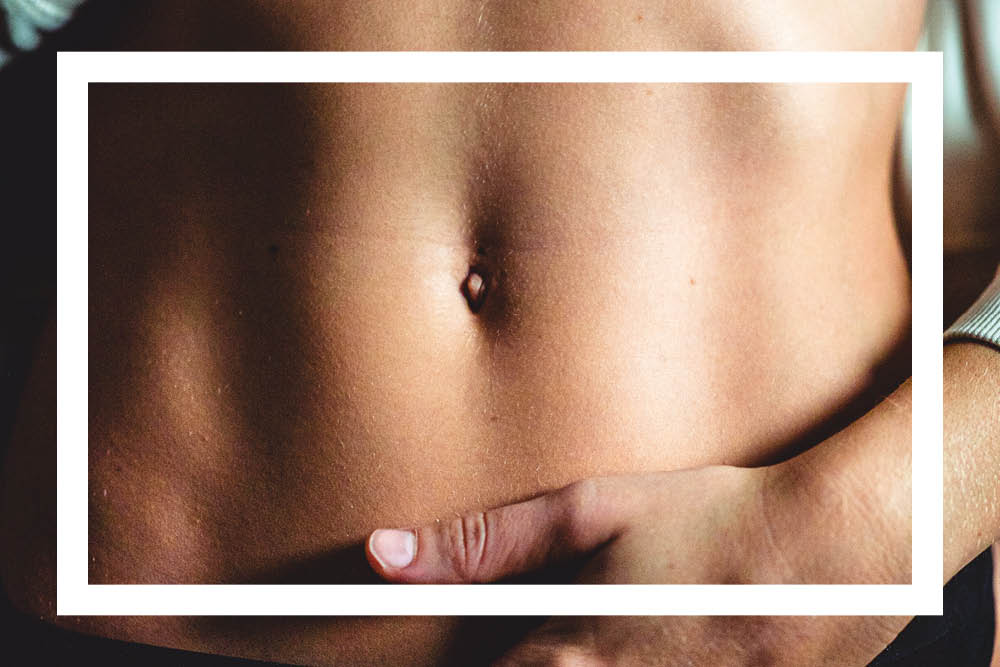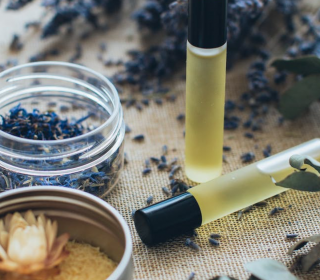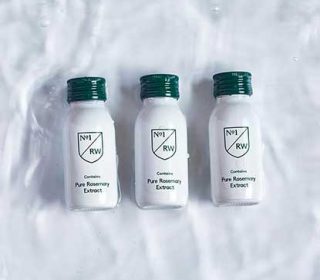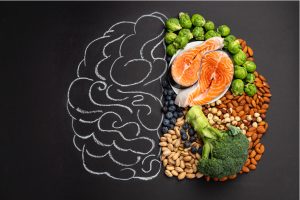The Gut Microbiome: 5 ways it can impact our skin

Before I share with you my five pillar plan for healing skin, I want you to begin thinking about skin conditions a little differently. When we talk about skin problems such as eczema, psoriasis or rosacea, we have a natural tendency to focus solely on what’s visible. But what about what’s invisible – like the condition of our gut microbiome?
I like to encourage people to change their way of thinking. It’s important to consider what’s on the surface as a very noticeable symptom of an underlying problem. This is why steroid treatments and medicated lotions are ineffective long term. All they do is temporarily relieve the symptoms. Once treatment stops, the underlying issues cause the skin to flare up again. Doctors will often prescribe a stronger cream and repeat the cycle, creating a frustrating remission / flare pattern that’s seemingly impossible to break.
If creams prove ineffective, immunosuppressant medication is often the next step in treating skin. In the case of autoimmune conditions, these drugs dampen down the immune system, in a bid to stop it over-reacting. Their effectiveness is once again short-lived as they’re not targeting the root cause. Once medication stops, the underlying problem is still there and repeatedly causes the skin to flare.
To break this frustrating cycle, I recommend establishing the root triggers for your skin condition. This can be the most difficult part of a natural healing journey.
For years, my own doctor assured me that diet would make absolutely no difference to my psoriasis. I knew for a fact my skin turned increasingly red, more itchy and inflamed after too much alcohol or a week of lazy, processed meals. My instincts were telling me diet was important. My doctor assuring me diet played no part made me lazy.
I would also say that over 90% of people who talk to me about their skin tell me stress can most certainly be one of their triggers.
Whilst doctors seem more open to the prospect of anxiety exacerbating flares, they never really explain to patients the importance of dealing with it.
WHAT IS LEAKY GUT?
Let’s begin with the connection between our skin and our gut. Leaky gut, a condition in which the junctions in our intestinal lining break apart, can cause harmful substances to ‘leak’ and enter the bloodstream.
This leads to inflammation, which in turn can cause and aggravate skin conditions such as psoriasis, rosacea and eczema. The gut is our digestive tract, everything inside the body from our mouth down to our bottom!
It’s a fascinating new area of research for scientists who acknowledge that seventy percent of our immune system lives there. The gut is full of trillions of bacteria known as the ‘gut microbiome’. Some of these bacteria are incredibly essential to keeping us well. Lots of factors play a role in our gut health: stress, medication, sleep, diet and exercise are perhaps the five most important factors when it comes to maintaining a healthy microbiome.
1. MEDICATION
Researchers acknowledge that common medications, including antibiotics and laxatives, can alter the gut microbiome. Taking a course of antibiotics might be essential to kill infection, but the gut can’t distinguish between good and bad bacteria. So rather than selectively targeting the bad stuff, it strips us of everything.
This is not to say we should never take antibiotics, sometimes they can be essential to stop us getting really sick, but if you are taking a course it can be useful to boost good gut health through getting plenty of rest, eating well, taking exercise and considering a probiotic supplement.
2. SLEEP
When it comes to gut health and sleep, it’s very much a two-way street. Poor sleep patterns can deplete the gut of essential bacteria, whilst a lack of good bacteria can result in poor sleep.
It isn’t always an easy cycle to break, but putting in place simple rules, such as a regular bedtime routine, no screens an hour before bed, and regular exercise each day to promote a balanced circadian rhythm can all help.
3. EXERCISE
Exercising when skin is broken or painful can often feel uncomfortable. Skin might also appear more aggravated and itchy post-workout. These factors sometimes dissuade us from exercising, when in fact exercise can be really beneficial for our gut, and in turn our skin.
Exercise has been shown to alter the composition and functional capacity of the gut microbiota, independent of diet. A recent study compared active women with a controlled sedentary group, and observed that women who took at least three hours of exercise per week had increased levels of multiple beneficial bacteria.
Just as with sleep, you might wonder whether physical exercise transforms the microbiota, or if it’s having a healthy microbiota that makes you more inclined to exercise. It’s a chicken-or-egg scenario that scientists are exploring from both angles.
When it comes to the kind of exercise we should be doing, the consensus is that cardio is the way to go. Studies indicate that aerobic exercise benefits the microbiome, both in terms of increased abundance of beneficial bacteria and overall diversity. Walking, running, dancing, cycling, rowing and swimming are all examples of cardio workouts.
4. STRESS
The gut-brain axis is an important one. You might wonder how on earth what goes on inside your head plays a role in your digestive system, but when you think about it the correlation seems obvious.
Remember those times when you felt so nervous or upset you were physically unable to eat? Or when your anxiety reached a level where you could feel non-stop butterflies in your stomach?
These clearly demonstrate the very strong correlation between what we experience in the mind and how that impacts our gut. The gut microbiota has been implicated in a variety of stress-related conditions including anxiety, depression and irritable bowel syndrome (IBS).
The National Institutes of Health estimates that over 20 million people in the USA suffer with autoimmune conditions, with numbers increasing year on year. A possible connection between rising levels of daily stress, poor quality processed convenience foods and depleted gut bacteria would certainly explain the increase.
Reducing stress in today’s chaotic world can be a difficult one to master. The impact of meditation on gut health is beneficial, as meditation activates the parasympathetic or ‘rest and digest’ response. This has been shown to alleviate digestive issues by easing symptoms of IBS, maintaining a healthy gut barrier and reducing inflammation, as well as improving nutrient absorption and metabolism.
5. DIET
Probably the most obvious connection when we consider the health of our gut is thinking about what we’re asking it to digest. It is now understood that diet plays a significant role in shaping the microbiome, with experiments showing that dietary alterations can induce microbial shifts within just 24 hours.
Studies examining the composition and role of the intestinal microbiome in different disease states have not only uncovered associations with inflammatory bowel diseases (IBD), but also inflammatory skin diseases such as psoriasis and atopic dermatitis.
A 2018 study by Dr. P Haines Ely explored the close correlation between psoriasis and gut bacteria. His findings revealed that the psoriatic microbiome is similar to that seen in alcoholics; there is a decrease in bacterial diversity and overgrowth of bacteria in the small bowel. Dr. Ely stated that the “treatment of psoriasis with biologics is like suppressing the smoke without mention of the fire.”
Eating a well-balanced, plant-based diet is the simple key to maintaining a healthy gut microbiome. But there are also foods we can introduce that go over and above when it comes to replenishing good gut bacteria. Fermented foods such as miso, tempeh and sauerkraut are particularly important. You might also have heard of probiotic drinks such as kombucha and kefir, which can help replenish lost bacteria.
A VISIBLE BAROMETER
I consider the skin to be a visible barometer of our internal gut health. When we see a flare on the surface, something is out of kilter inside. By incorporating lots of healthy, plant-based recipes, working on regular cardio exercise, managing stress, and achieving a restful night of sleep, we create the perfect recipe for good gut health, which in turn rewards us with glowing, radiant skin.
Use code BALANCE10 for your 10% discount on Hanna’s website.
Skin Healing Expert: Your 5 pillar plan for calm, clear skin by Hanna Sillitoe will be published by Kyle Books on 6 August 2020, and is available for pre-order now on Amazon.









